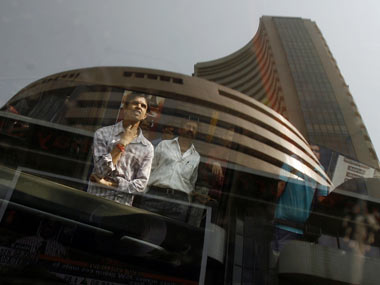The National Spot Exchange Ltd (NSEL), which faces a risk of default after suspending trade, today said it has formed an independent committee to advise and monitor settlement of trade amounting to about Rs 5,500 crore.
[embedalsosee]
NSEL will come out with the settlement plan by 14 August, Jignesh Shah, Chairman and Managing Director of Financial Technologies India Ltd (FTIL), one of the promoters of NSEL, told reporters in Mumbai
The exchange has been in a crisis after it suspended trade in most contracts on July 31. The decision to set up the committee was taken after a joint meeting of the regulator the Forward Markets Commission (FMC) and NSEL with investors yesterday.
“NSEL constituted an independent committee of eminent persons for the purpose of advising and monitoring the progress of financial close-out plan,” the exchange said in a statement.
Members of the committee include former Company Law Board Chairman Sharad Upasani, former Bombay High Court judge R J Kochar, former Sebi and LIC Chairman G N Bajpai, and D Sivanandan, former Director General of Police in Maharashtra.
[caption id=“attachment_1011137” align=“alignleft” width=“380”]  Reuters[/caption]
NSEL said the exchange will collate the payment plan from buyers and finalise pay-in and pay-out in consultation with the FMC and then announce it to the market.
Yesterday, the exchange said eight entities are willing to pay about Rs 2,181 crore as per the scheduled due date or earlier.
Another 13 entities have offered to pay about Rs 3,107 crore in weekly instalments, while negotiations are on with three others for payment of Rs 311 crore.
At the press conference, however, Shah had no answer to the pointed questions from the reporters. He said the questions being put to him are too micro and only CEO Anjani Sinha, then at the FMC, will be able to answer those.
Earlier today, the Business Standard reported that difference of prices of paddy stocked with NSEL and that available in the market is wide and that this has the potential to hit the exchange’s settlement plans.
The exchange has maintained that it has Rs 6,200 crore worth of physical stock available in its warehouses which it can liquidate to resolve the payment crisis.
However, the BS report puts a question mark on this claim. Already there have been questions as to of NSEL had enough stocks why is not swiftly selling off the commodities as paying off the members.
The exchange has 509,851 tonnes of paddy lying in 10 warehouses and the average price it quotes as of the day it suspended trading was Rs 28,120 per tonne. However, as per the market data available with www.agmarket.nic.in, the price of the produce in the spot market is only Rs 9800-Rs 17,000 per tonne.
In other words, if the exchange were to auction its paddy stocks now, the price it gets will be significantly lower than its claims.
And moreover, when such a huge quantity is offloaded in the market the prices are sure to erode. This will definitely bring down the price further.
With inputs PTI


)
)
)
)
)
)
)
)
)



